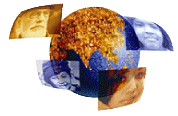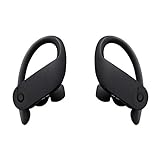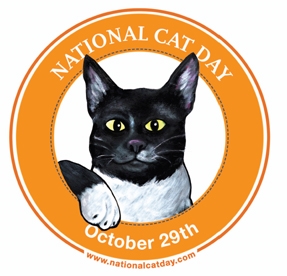World Psoriasis Day 2024 is on Tuesday, October 29, 2024: Dr fish cure psoriasis in Kangal, Turkey, have you been there?
Tuesday, October 29, 2024 is World Psoriasis Day 2024.
As an Amazon Associate I earn from qualifying purchases.

Hi Odashar
I dont know Dr fish, but I do know how to heal the issue (below).
Here are some ideas on how to heal the issue.
Cause
Psoriasis is metabolic in nature and can be triggered by environmental or stressful conditions, poor diet, flu-like conditions, the administration of penicillin, and nutritional deficiencies. Patients with psoriasis are also a higher risk of rheumatoid diseases.
Psoriasis can be caused by food allergies, essential fatty acid deficiencies, low digestive enzyme and hydrochloric acid levels, vitamin B complex deficiencies, emotional stress, illness, drugs (such as beta-blockers, lithium, and chloroquine), poison ivy or oak, skin damage, and several infections, bacterial or viral in origin.
------------------------------...
Natural Cures
Aromatherapy: The following essential oils are recommended: bergamot (to help heal skin plaques), lavender (to reduce excessive itching), melissa (for irritated skin), jasmine (for dry sensitive skin), geranium (for dry irritating skin), and sandalwood mysore (for dehydrated, inflamed, and sensitive skin).
Diet: Screen for and eliminate all foods to which you are allergic or sensitive. Eat a varied diet of organic, whole foods, rotating foods as much as possible. Eliminate wheat and wheat products for 1-3 months. Consume seafood high in omega-3 fatty acids, such as wild salmon, sardines, mackerel, herring, and each day, on a rotating basis, take one tablespoon of olive or flaxseed oil, and be sure to drink plenty of pure, filtered water. Organic beef, venison, poultry, garlic, onions, parsley, organic plain yogurt, and sauerkraut are also recommended.
Flower Essences: Rescue Remedy Cream® applied topically can soothe symptoms.
Herbs: Combine equal parts of burdock, sarsaparilla, and cleavers tinctures and take one teaspoon three times a day. Silymarin (milk thistle) is also helpful for psoriasis due to its positive effects on liver function.
Homeopathy: Useful homeopathic remedies include Psorinum, Sulfur, Graphites, Cuprum met., and Arsen alb.
Hydrotherapy: Hydrotherapy is the application of water, ice, steam and hot and cold temperatures to maintain and restore health. Treatments include full body immersion, steam baths, saunas, sitz baths, colonic irrigation and the application of hot and/or cold compresses. Hydrotherapy is effective for treating a wide range of conditions and can easily be used in the home as part of a self-care program. Many Naturopathic Physicians, Physical Therapists and Day Spas use Hydrotherapy as part of treatment. I suggest several at-home hydrotherapy treatments.
*Purified water is essential for any hydrotherapy treatment. Remedies for Treating Chlorinated Bath Water offers clear instructions and recommendations.
Juice Therapy: The following juice combinations can be helpful: apple and carrot; beet, cucumber, and grape; and beet, carrot, burdock, yellowdock and garlic.
Lifestyle: Mild cases of psoriasis may be helped by daily exposure to sunlight. Frequent exercise is also recommended.
Nutritional Supplementation: The following nutrients can be helpful: evening primrose oil, omega-3 essential fatty acids, vitamin A, vitamin B Complex, vitamin B6, Vitamin B12, vitamin C with bioflavonoids, folic acid, lecithin, zinc, and a multimineral supplement. Taking hydrochloric acid (HCL) with each meal can also be of use.
In Europe fumaric acid treatment in the form of fumaric acid tablets, ointment, lotion, and scalp lotions is widely used to reverse symptoms of psoriasis
Topical Treatment: Apply seawater to the affected skin several times daily. Linseed or avocado oil, aloe vera gel, and/or capsaicin cream applied topically can reduce the scaling, thickness, redness, and itching.
Best of health to you

Will the acid from Lemons get rid of psoriasis?
It totally depends upon what is causing the psoriasis.
There are a few types of psoriasis. Seborrheic dermatitis which is caused by a fungus. The Guttate psoriasis which is caused by a bacteria (group A Strep) is typically treated with antibiotics by the medical people. The worst one is believed to be an "auto-immune" disease where infections (can be viral) cause the body to unleash it's immune system on the tissue where the bad germs are and appear to attack the body's tissue. Everywhere in the world they know that there is NO such thing as an "autoimmune" disease, except in the U.S. where they are behind in research on this issue. Infection(s) are the culprit, not the immune system.
It can be made worst by cold, darkness, trauma and certain medications. The medical solution is not a good one, but nevertheless, it is usually treated with corticosteroids, UV treatment or immunosurpessant drugs such as methotrexate or cyclosporin.
All these drugs do is attempt to treat the symptoms and never get to the "root cause."
Psoriasis is most likely an adrenal gland and fat metabolism problem. All the cremes, drugs, and other so called modern day medicine cures are ridiculous because they are treating the symptoms and when the symptoms are gone, the underlying problem is still there and that is why you get recurring events.
If you are not getting good sleep at night ( 1 - 2 REM sleep periods ), this will not allow your adrenal glands to recharge properly and cause them to not work properly.
You need to eliminate ALL hydrogenated oils, fried foods, trans fats, and especially genetically modified oils like Canola, Soybean, Cottonseed, and Corn oils. These are all being genetically altered and wreak havoc with your bodies immune system and fat digestion. Don’t be like a lot of uninformed Americans that eat these “vegetable” oils that are creating huge digestive problems. The best oil to cook with and make salad dressings is a mixture of: 1/3 olive oil, 1/3 sesame seed oil, and 1/3 coconut oil. All the oils should be from organic sources. Add some balsamic vinegar to the oil mix for a great salad dressing. ALL the commercial salad dressings are loaded with the bad vegetable oils. Avoid them totally.
Your liver and gall bladder need to be taken care of because if they are not working properly, you will not digest your fats correctly and this will contribute heavily to the problem. Drugs like Prednisone will damage your liver and the Magnesium Stearate they put in the tablets and typical pills (even vitamins) will suppress your immune system. If you are eating a diet high in carbohydrates and low in fats, this is a big problem because the low fat diet will cause the bile in your gall bladder to become very viscous and not work properly, hence, not digest your fats properly. You need a diet that is balanced at 40% protein, 30% carbohydrates, and 30% fats to be healthy.
If you are a woman (you didn't say), and had an episiotomy when you gave child birth, this could play a big role in this problem because the scar from the episiotomy will reflex to your adrenal glands and reduce the energy to a point where they won't work properly and cause this problem. If you have any scars or traumas to the back (including an epidural, etc.), this will cause the adrenal glands to be very weak and become a major contributor to the problem.
To correct these problems, if it were me, I would do the following and expect results very quickly.
Stop all medications unless your doctor tells you that you cannot, but make sure any steroids you have taken or are taking is slowly eliminated if you are taking these. Once you have stopped them, you are going to have to deal with lots of other digestive issues they have messed up.
Buy some "pink sea-salt." This is salt that contains minerals and other ingredients that will help your problem. Take at least 1/2 teaspoon of this per day.
Any drugs you have taken, killed your intestinal flora and you have Candida Albicans overgrowth (yeast problem) that you are now going to have to deal with. This has stopped your body from producing “B” vitamins naturally. If you are itching, getting styes, ringworm, etc. this is most likely a good reason for this. It's not enough to take B vitamin pills to fix this, it won't, especially if you get the “B” Vitamins in a tablet from from drug stores or health food stores because they are all very toxic to your body because they are petroleum distillates of COAL TAR (nothing natural about them). You need to eat lots of fermented foods, like keifer, sauerkraut, miso (a good brand is Yamabuki), yogurt, etc.
I stongly suggest you (800) 370 – 3447 and order the "Max Stress B" product. I would take 1/4 teaspoon day one, and then increase it daily up to 2 teaspoons after one week. This is a very potent form of “B” Vitamin source that contains the "end chain" B's and is highly assimilated by the body, unlike the "B's" sold in stores that are dead chemicals made from petroleum distillate derivative of Coal Tar. Even vitamin B-5 is available in this as it's end chain form of Coenzyme A that is NOT available in any other product I know of. This will stop any itching you may have also within a couple days. It will go into your system within about 20 seconds of consuming it and not be urinated out like the other B-vitamin products you may or may not have taken in the past.
I would also purchase from the same company a product called Adrenal Complex. I would take 9 to 12 of these at breakfast each day. I know it sounds like a lot, but you need these herbs to go to work on your deficiencies.
If you follow this routine, you should see very positive results within a few days and more permanent results within at 2 months period and it should not return.
I would also change my diet to heavy omega 3 fatty acid foods such as WILD fish (not farm raised), Beef from grass fed cows (very high in omega 3 fatty acids), unlike the high omega 6 fatty acid garbage beef from grain fed cows sold in commercial grocery stores, flax seed products. Eliminate sugars, especially sodas (even diet sodas), white flour breads. This feeds the Candida and the phosphoric acid in the sodas is binding the calcium, magnesium, zinc, iron, potassium, etc. preventing absorption. The high fructose corn syrup is NOT sugar and must be broken down by the liver and causes heavy liver toxicity that contributes to the problem. It is also genetically engineered and many allergies and problems like you are having are coming from that junk.
I would also purchase from that company the Betaine HCL and activator, as well as the digestive enzyme and take 4 Betaine HCL and 2 activators after each meal, and 2 digestive enzyme with each meal. I would also purchase the probiotic and take one in the morning and one at night. I would take it with homemade keifer milk you make yourself at home from RAW MILK you purchase from a dairy that grass feeds cows, not GRAIN FED! You can take this even if you are lactose intolerant. Additionally, I would go to: www.organicpastures.com and find out local sources or order from them ALL their RAW milk products, including milk, colostrum, raw butter, etc. This is very good for you.
All medications and drugs of any kind will only give you "MAKE BELIEVE HEALTH" that ultimately takes a toll on your body and can actually shorten your life expectancy because it is NOT real health.
good luck to you

author john updike's outlook on psoriasis?
The I's Have It
At 72, John Updike Still Hasn't Run Out Of Things to Write About . . . John Updike
By Linton Weeks
Washington Post Staff Writer
Wednesday, May 5, 2004; Page C01
BOSTON
The Grayed American Writer is walking . . .
No. The writer is strolling.
With more than 50 books in 50 years, John Updike does not intend to rest on his latest laurel: The PEN/Faulkner Award for Fiction for "The Early Stories," which he will collect Saturday in Washington. (Laurie Swope For The Washington Post)
No. Ambling. That's the precise word. John Updike is ambling down Blossom Street in Boston. It is Patriots Day and Boston Marathon day and the banks are closed.
But the world is wide open and full of possibilities.
An amiable sun shines down. Clad in khakis, plaid sports jacket and a crayon-yellow turtleneck, Updike, arguably among the most talented living writers in the world, has a toothy smile on his red face. His hair is gray-white.
He is amused: At the past. At the present. At the country. At long races. At short stories. At human foibles of all colors.
But most of all Updike is amused at his amusement. He is endlessly fascinated by his own self, which he has explored and exploited in more than 50 books in the past 50 years.
His latest is a collection, "The Early Stories: 1953-1975." For this, he'll receive the $15,000 PEN/Faulkner Award for Fiction on Saturday at a fancy dinner at the Folger Shakespeare Library in Washington.
Though he's 72, this is not a lifetime achievement award. He still has books to write. As long as he is walking and smiling and breathing, as long as he has eyes and skin and teeth, he will have something to write about. He's a marathoner.
As he takes a seat in Foster's, a bar and cafe on the first floor of the Holiday Inn Government Center, he drops a brown folder onto the nearby windowsill. Its innards are a secret he will later reveal, he says. Surely it's something he's written. Surely it's something about himself.
The eyes are hazel. And pale. And watery today. He's just come from the eye doctor. He goes to doctors often.
"I have so-called little lesions under my eyes," he says. Pre-cancerous, he adds.
And he has extremely bushy white eyebrows. The bristles poke into his eyes.
It is because he sees so well that he writes so beautifully. He began as a draftsman, sending cartoons to the New Yorker before sending short stories. "I had aspirations to be a comics artist," he says.
He still writes occasional pieces of art criticism and plans to publish a collection of them next year.
He rises from the table and steps into the hotel foyer. On the wall are large pastel prints by Thomas Kinkade -- schlocky cityscapes of New York and San Francisco.
Updike has never heard of Kinkade, the most popular artist in America and the prime mover in a $2 billion-a-year enterprise. "The paintings," Updike observes, with amusement, "have a creepy, old-fashioned feeling."
He writes in the colors and light of a painter. This is from a strange little sketch called "Leaves" in the new collection:
"The grape leaves where they are not in each other's shadows are golden. Flat leaves, they take the sun flatly, and turn the absolute light, sum of the spectrum and source of all life, into the crayon yellow with which children render it. Here and there, wilt transmutes this lent radiance into a glowing orange, and the green of the still-tender leaves -- for green persists long into autumn, if we look -- strains from the sunlight a fine-veined chartreuse."
"Writing is a way of taming the world," he says, "turning the inchoate, often embarrassing stream into a package." It's a construct that enables him to remain amused, and amazed. Putting the world on the page has made a good living for him and for countless professors around the world who teach his books.
He adds that writing "does make the world realer to me."
In an interview with Roger Mudd that aired recently on the History Channel, Updike says: "I never thought of myself as a rapid writer. Just sort of steady." For decades he has worked three hours a day six days a week. He never writes on Sundays.
Writing, he says, "is a matter of patience."
And "a way to get your self on paper."
An only child, and a stutterer, Updike began to express himself in stories on his mother's typewriter when he was 11. He grew up in Shillington, Pa., which is an hour or so northwest of Philadelphia. His father was a teacher. His mother worked in a department store.
After graduating from Harvard University in 1954, he accepted a fellowship to the Ruskin School of Drawing and Fine Art in Oxford, England. While there, the New Yorker offered him a slot as a staff writer. He moved with his wife, Mary, to Manhattan. They stayed in New York less than two years, then moved to Ipswich, just north of Boston. They have four grown children.
He has won a couple of National Book Awards and Pulitzer Prizes. He is perhaps most renowned for his series of novels about Harry "Rabbit" Angstrom. In the first one, "Rabbit, Run," Angstrom is a former athlete and a young husband who feels trapped in his marriage and his dead-end life. He goes out for cigarettes one night and keeps going. Updike follows Angstrom's search for meaning in several subsequent novels.
Updike admits that if you take Rabbit out of his oeuvre, he would have few literary prizes and less praise.
Updike's books are seldom bestsellers. He has a core audience and he expects to sell 30,000 or so copies of a new novel. His books do not translate well into movies. Only two -- "Rabbit, Run" and "The Witches of Eastwick" -- have made it to the big screen. He feels that both failed, for different reasons. The first, which starred James Caan, was faithful to the novel but not widely seen. The second, which starred Michelle Pfeiffer, Susan Sarandon, Cher and Jack Nicholson, was more popular but wound up being "silly."
Literary fiction, he tells Mudd, is a relatively new phrase. "I apparently write it," he says. "I never wanted to write it. I wanted to write fiction."
In the 1950s, "when I began this trade," he says, "the literary writers were also best-selling writers. There wasn't this gap between literary fiction and middle-class fiction."
Updike is a dinosaur. He's a throwback to another era when writers wrote and didn't teach or act in movies or star on "Hollywood Squares."
Way back then, people read Hemingway and Steinbeck and Fitzgerald. "Books meant something," he says, "when your piano teacher read Steinbeck."
He marvels that on the one hand people are reading less, but on the other they're writing more. There has been a proliferation of writing courses in colleges, he points out in the documentary. "They are like courses in basket weaving in a culture that's gone to plastics."
In separate essays, Tom Wolfe called Updike "insular, effete and irrelevant" and David Foster Wallace asked if he has "ever had one unpublished thought?"
Updike's answer to Wallace is: Yes. But, of course, there is still time.
"People may have liked me better if I had written less," says the master of over-honest introspection. Updike writes a lot -- short stories and book reviews and art criticism and novels. "I like seeing my name in print," he says.
And he enjoys the steady checks. The New Yorker sometimes rejects his work. For instance, the editors said no thanks to a 9/11 tale titled "Varieties of Religious Experience."
He sold the story to the Atlantic Monthly.
"Fiction," he says, "is part confession, part lie."
Over the years, Updike's brain has undergone a strange shift. Through constant fictional confession and the blurring of fact and myth, many of his memories have been supplanted by his memoirs. He recalls one particular trip he made to New York when he was young. His recollection is more of the story he wrote about the visit than of the visit itself. "Having written the story," he says, "totally displaces what really happened that day."
If the unexamined life is not worth living, what can you say of the over-examined life? That it's worth sharing?
He touches his splotchy skin every now and then as he talks.
"I might have drifted into some ordinary job but for the psoriasis," he says. He wrote about his chronic condition, natch, in an essay titled: "At War With My Skin."
He included the essay, natch, in his memoir "Self-Consciousness."
The skin problem made his commitment to writing "more fierce," he says, because he needed as much time as possible to sit on the beach and let the sun burn the itching away.
The focus shifts from his skin to his mouth, and he points to his eight incisors. "These are the only real teeth I have," he says. He writes about his dental health in another introspective essay, "On Not Being a Dove." I was to have a number of teeth pulled in my young manhood, as I went from high school to college and marriage and a scattering of living sites.
As in many Updike essays and short stories, what starts as a meditation on one small thing (like teeth) blooms into something larger (why he did not protest the Vietnam War).
On this Patriots Day, Updike is again thinking about war and politics. He has met President Bush. "I give him high praise for graciousness," Updike says. "Laura, too."
But, he adds, "that doesn't make me a Republican."
"Upon sober reflection at age 72," he says, "the Democratic Party is the party that tries to give losers a chance. A laissez-faire government drives a culture apart."
He says toothily, "I would like to see Kerry win."
Updike seems easy in his skin this day. He speaks of reading Proust. And James Joyce's "Dubliners," which he says is a writing course in itself.
He plays a little golf, and he has served as a marshal at a Ryder Cup match and the U.S. Open. He lives in Beverly now, with his second wife, Martha.
Through the years, Updike nearly always attended church. In his autumn, he has become a regular at St. John's Episcopal Church in Beverly Farms. "The Episcopal church is a good place for a half-assed Lutheran to settle," he says. "I need the pinch of salt that religion gives."
Writing regrets? He has a few. The original Rabbit novels, for instance, were written too fast and contained some factual errors, "like saying that a certain model car has its engine in the front when it's in the back," Updike says. He has tried to fix the errors in subsequent editions.
Mostly he is pleased with his writing life. He has another novel coming out in the fall. "I'm reading proofs now," he says. "That's what's in the brown folder."
And on this Boston Marathon day, he is thinking about the long run. He glances over his shoulder at the TV above the bar. He watches the end of the race and an interview with the winner, Timothy Cherigat of Kenya.
Now it's time for Updike to run. He reaches for the folder and tucks it under his arm. The working title of the novel is "Villages." It's a story about an aging computer programmer, he says, and about "a life's education via the towns you live in."
By education, he means a philosophical construct to help us stay amused and amazed in this strange and changing world. By towns, he means places like Shillington, Pa., Ipswich and Beverly.
And by you, he doesn't mean you, of course. He means Updike.











